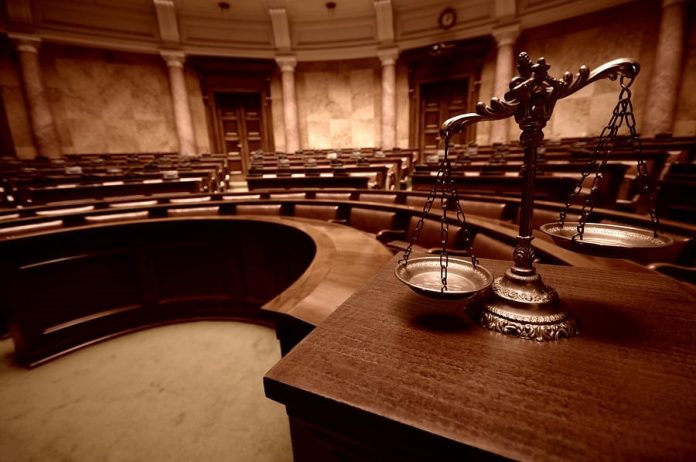PATEL FIELD MARSHAL AGENCIES LTD.
V.
PM DIESELS LTD
2018 (2) SCC 112
INTRODUCTION
The Apex Court dealt with a rather important question of the Trademark Law in this case. The court adjudicated on sec 46, sec 56, sec 107 and sec 111 of the Trade and Merchandise Marks Act, 1958.
Sec 46 contemplates that if a trademark has been registered without any bonafide intentions of using it, and the same has not been used one month prior to an application for removal or for a continuous period of five years, then the same can be removed from the register.
Sec 56 of the Act, empowers the tribunal to cancel the registration of a trademark or vary such a registration if it is shown that any provisions have been contravened or there has been a failure to observe any condition for which the registration was granted.
Sec 107 of the Act says that if the registration is challenged of a trademark then an application can be preferred to the High Court for a rectification. Such an application is not to be made to the Registrar.
Sec 111 of the Act provides that if an application is made for rectification before the registrar or the high court and a proceeding is pending adjudication for an infringement of a trademark and if a plea is taken about the same then the suit shall be stayed. If no such application is pending for rectification and a suit is instituted on a later date for infringement, then in such a case if an application is made for rectification or the issue subsequently arises then the suit shall be stayed for a period of three months and the court shall frame issues to that effect.
FACTS
The facts of the case were that the Respondent was the owner of three registered trade marks and the words ‘Field Marshal’ were common amongst all the three. One registration was for the mark Field Marshal, the other was for lettering style of ‘Field Marshal’ and the third was for ‘FM Field Marshal’. The first was registered in 1964 and the last two were registered in the year 1968
The Appellants on the other hand applied for a trade mark ‘Marshal’ in the year 1982. The respondents cam to know of the same and served a cease and desist letter to stop the appellants from using the mark and registering the same.
ISSUES FOR DETERMINATION
The primary issue that was up for deliberation in this case was that whether a party can have recourse to sec 46 and sec 56 of the Act in an event where they failed to prefer an application for rectification as per sec 107 read with sec 111 of the Act.
Appellant’s Argument
- The appellants argued that sec 107 and sec 111 contemplate granting of permission by the trial court for filing of an application for rectification and the same does not follow from a bare reading of the two provisions.
- It was stated that under the act there are two types of rights which are granted. One is granted to the owner of a registered trademark and the other is granted to a person who is aggrieved by such a registration. Both are independent of each other.
- The only condition necessary to prefer an application under sec 107 read with sec 111 would be that a person should be an aggrieved person.
Defendant’s Argument
- The defendants contended that sec 111 (3) and sec 111(4) make it clear that once the court is satisfied that a question regarding the validity of a registration of trademark has arisen then the same has to be decided in a rectification proceeding.
- It was argued that sec 46 and sec 56 relate to a situation where no suit is pending adjudication for infringement. These sections are independent of sec 107 and sec 111.
- It was argued that when a suit for infringement has been filed and questions of the trademark’s validity have arisen and the court is satisfied about the issue then the provisions of sec 111 will be applicable. If a party abandons the plea of invalidity then it would mean that the same is relinquished and recourse to sec 45 and 56 would close.
Judgment-
The Supreme Court settled the issue by holding that:
- The questions of validity of registration are to be decided by the tribunal and not the civil court. In situations where the party has not moved the civil court, sec 46 and sec 56 provide a party the statutory right to seek rectification.
- If a party has moved the civil court and the issue of validity of a trademark has been raised then such a plea will be decided by the tribunal and not the civil court. This will happen only if the civil court is satisfied and it has framed an issue to that effect. The decision of the tribunal will be binding on the civil court.
- If the parties do not approach the tribunal for rectification after the order of the civil court then the parties relinquish the plea to rectification.
- It was held that the plea of rectification would cease if the same is abandoned and the recourse under sec 46 and sec 56 would not be available to the parties. If the same is allowed to subsist then the same would lead to anarchy.
- It was observed that the intent of the legislature by enacting sec 111 is to address the question of invalidity needs to be decided in the first instance. Once the plea of rectification has been raised and settled will the suit proceed with regard to the other issues.





